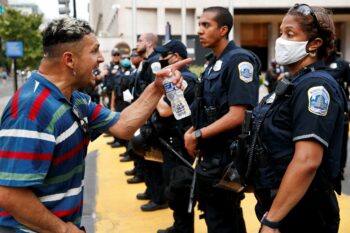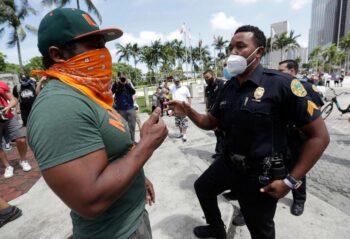Police-bashing with the rant of “systemic racism” is only hurting the black community, according to an African American police chief on the East Coast, who asked that his name not be used for fear of being fired.
“When you say policing is systemically racist, you are hurting the poorest communities because the police pull back and then violent crime rises,” he says.
“That’s what we’re seeing happening in New York, Chicago, Austin and across the county. Poor people die, the disadvantaged people who live in these communities,” he adds. “They did a recent survey and blacks in these neighborhoods want more police, not less. It’s whites from middle neighborhoods who make up about half of Black Lives Matter that want to defund police.”
Black cops are taking a lot of heat from Black Lives Matter, the organization with Marxist leadership that maintains they are fighting for racial equality. They’re portrayed by BLM as sellouts worthy of double reviling. He’s not sympathetic to BLM, which appears to support Marxism and promote African-style witchcraft.
“Am I on the side of Marxist anarchists? No,” he says. “I’m on the side of law and order and Christianity.”
Growing up in a middle class home in New England, he became a Christian after attending a Vacation Bible School as a pre-teen.
In 7th grade, he was first introduced to police officers at his school’s career day. He thought it was cool to carry a gun.
“That got the wheels turning,” he says
About a year later, he joined a branch of the Boy Scouts called Law Enforcement Explorers and realized that he wanted a career in the police department.
He also liked being a school safety monitor. Among other things, he gathered up stray 5th graders after recess when they were skating on the frozen pond across the street from the school and forgot to go back to class.
“The first badge I carried was a school safety patrol in the fifth grade,” he says. “It was great opportunity to serving and protecting in the fifth graders”
Then in the seventh grade, his teacher sent a classroom “hoodlum” to the principal’s office and picked the future cop to escort him. It was his first taste of taking a suspect in.
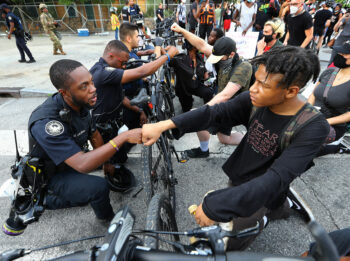
“The bug was bitten. I knew that was going to be my career,” he says. As a teenager, he worked in the small town police department going on ride-alongs and working dispatch. “It was exciting, helping people,” he says. “It was what I was interested in.”
During summer in college, he worked on a small town police force and then earned an undergraduate degree in criminal justice. Pretty quickly, he was accepted into an East Coast police force as one of the only blacks on the squad. He worked his way through the ranks of detective, crime prevention, community policing, auto-theft task force and supervision.
“I saw early on that police work provides a great mission field for Christian service,” he says. “There are people who will not darken the door of church, but I get to go into their house and deal with them.”
Where does Jesus intersect with police work? After saving the life of a young man who tried to commit suicide, he visited him on his day off and led him to the Lord. He got him to go to a local church.
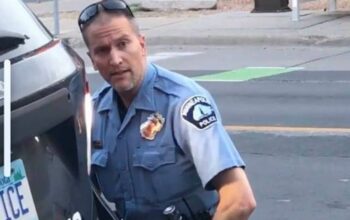
Police are being demonized by BLM right now, and African American cops draw extra ire because they’re seen as traitors. It’s ironic because people talk of getting more representation of people of color on the police force to have a good impact and help fight racism.
This controversy has put the police chief in its crosshairs. At one conference, protesters confronted him: “Whose side are you on?”
He just walked away, dumbfounded because he had done his part of get rid of racism on the force.
“That’s the mentality of a lot of people out there,” he says. “It bothered me because they don’t know anything about me. They just assume that because I’m attending as police, I’m not on their side. I’m not going to be naive to suggest that it doesn’t exist. The problem with policing is that we recruit from the humanity. But the popular narrative of systemic racism in law enforcement is a lie.”
This year, BLM, Antifa and the media have driven into the mainstream an idea previously held only by fringe radicals: to “defund” police.
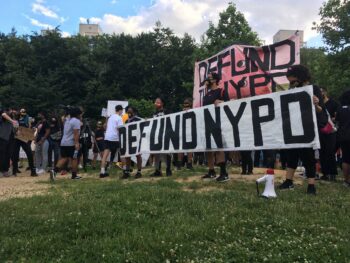
Minneapolis’s city council voted to completely “abolish” police. When asked by a CNN reporter who to call when your home gets invaded, City Council President Lisa Bender responded: “That (question) comes from a place of privilege.” She means “white privilege,” as in only whites expect protection from cops while blacks expect hostility.
However, the police chief says it’s the poor neighborhoods often populated by people of color that are hardest hit by a pullback on policing.
As a result of the current anti-cop climate in much of America, police are retiring and quitting and academies are being canceled at alarming rates. The trend threatens to leave communities without adequate protection, he says.
“Police are being pilloried across the nation,” he says. “The larger problem is no one wants to join the police force. Academy classes are being cancelled. Retirement is up 400% in New York City, it’s going to be a problem for years to come.
“The answer for America is repentance,” he says. “The problem is sin, not systemic racism.”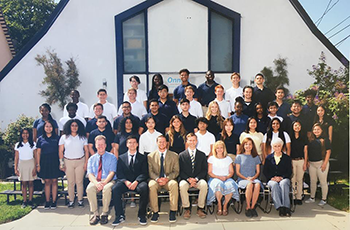
If you want to know more about a personal relationship with God, go here
Michael Ashcraft teaches journalism at the Lighthouse Christian Academy in Santa Monica.

